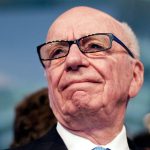Datuk Izzaddin Idris will step down from his position as Axiata Group Bhd’s president and group chief executive officer effective May 31. In a statement, the group also announced its chief executive officer for telecommunications business and group executive vice-president Hans Wijayasuria and group chief financial officer Vivek Sood as interim joint acting group CEOs, effective June 1.
Both will retain their current positions and portfolios while the group does not expect any additional changes to its senior leadership in the short term.
The move confirms Izzaddin’s possible departure from the group, following his supposed resistance towards the government’s Digital Nasional Bhd (DNB) 5G roll-out plan, despite the fact that Axiata is a government-linked company.
Axiata chairman Tan Sri Shahril Ridza Ridzuan thanked Izzaddin for his leadership during his tenure and stated that the latter was instrumental in shaping the group’s strategic response to secure its financial position.
“The board thanks Izzaddin for his wisdom, leadership, and contributions in steering the group over the past two years,” he said, noting that Izzadin had taken the helm on January 1, 2021 at the height of the Covid-19 crisis, after serving as deputy group CEO since January 2020.
“He has been instrumental in shaping the group’s strategic response to secure stability and business continuity in the face of daunting and unprecedented challenges across many aspects of our operations,” Shahril said in the statement today.
He also expressed his confidence in Hans and Vivek to lead the group as both are “strongly grounded” and “deeply committed” to the group’s success.
At Axiata’s annual general meeting yesterday, Khazanah Nasional Berhad (Khazanah) had abstained from voting on the resolution to reappoint him as a director.
Khazanah is a major shareholder of Axiata, which is the parent group for local telco giant Celcom.
The four major telcos – Celcom, DiGi, Maxis, and U Mobile, collectively known in the industry by the CDMU moniker – have been seen to be lockstep in their resistance to the implementation of the national 5G service by DNB.
Government-owned DNB has been tasked to build the nation’s infrastructure for 5G, which is the next exciting stage of mobile telephony, and telcos shall subscribe for access and subsequently offer products and services to consumers.
From the start, CDMU members resisted the DNB plan and had proposed their own competing networks, suggesting that it was not a well-thought-out plan.
Instead, they proposed their own plan, which was seen more as an act of self-preservation than for the good of the nation.
When the government persisted, they grudgingly accepted it, but soon coalesced into the CDMU we know now. They took unified stands on everything related to 5G and DNB.
They even came out with common statements that carried all their brands, spoke in one voice, and requested meetings with the authorities, interestingly excluding all other industry players, including the biggest of them all: Telekom Malaysia Bhd.
MARKETING Magazine is not responsible for the content of external sites.











